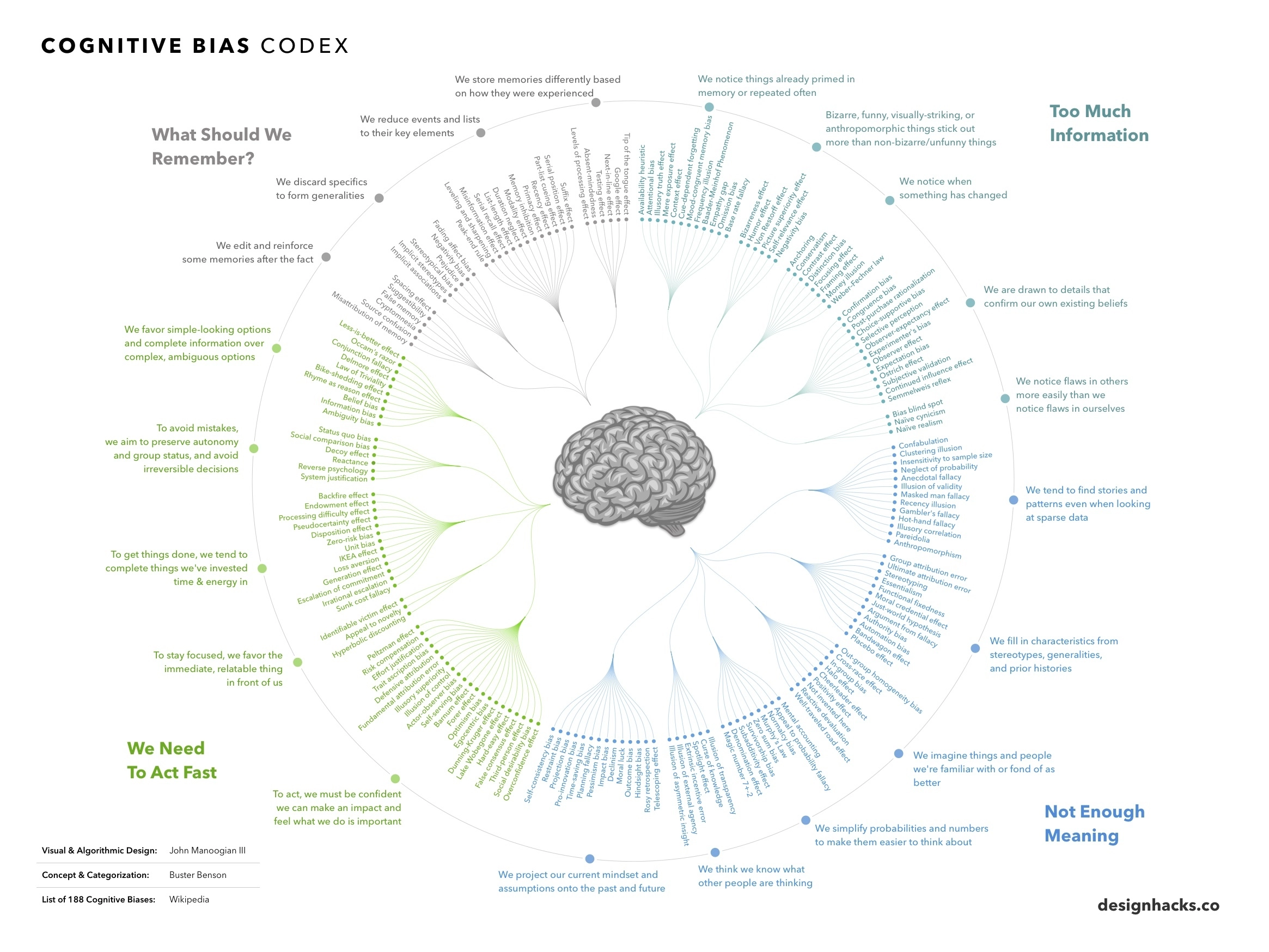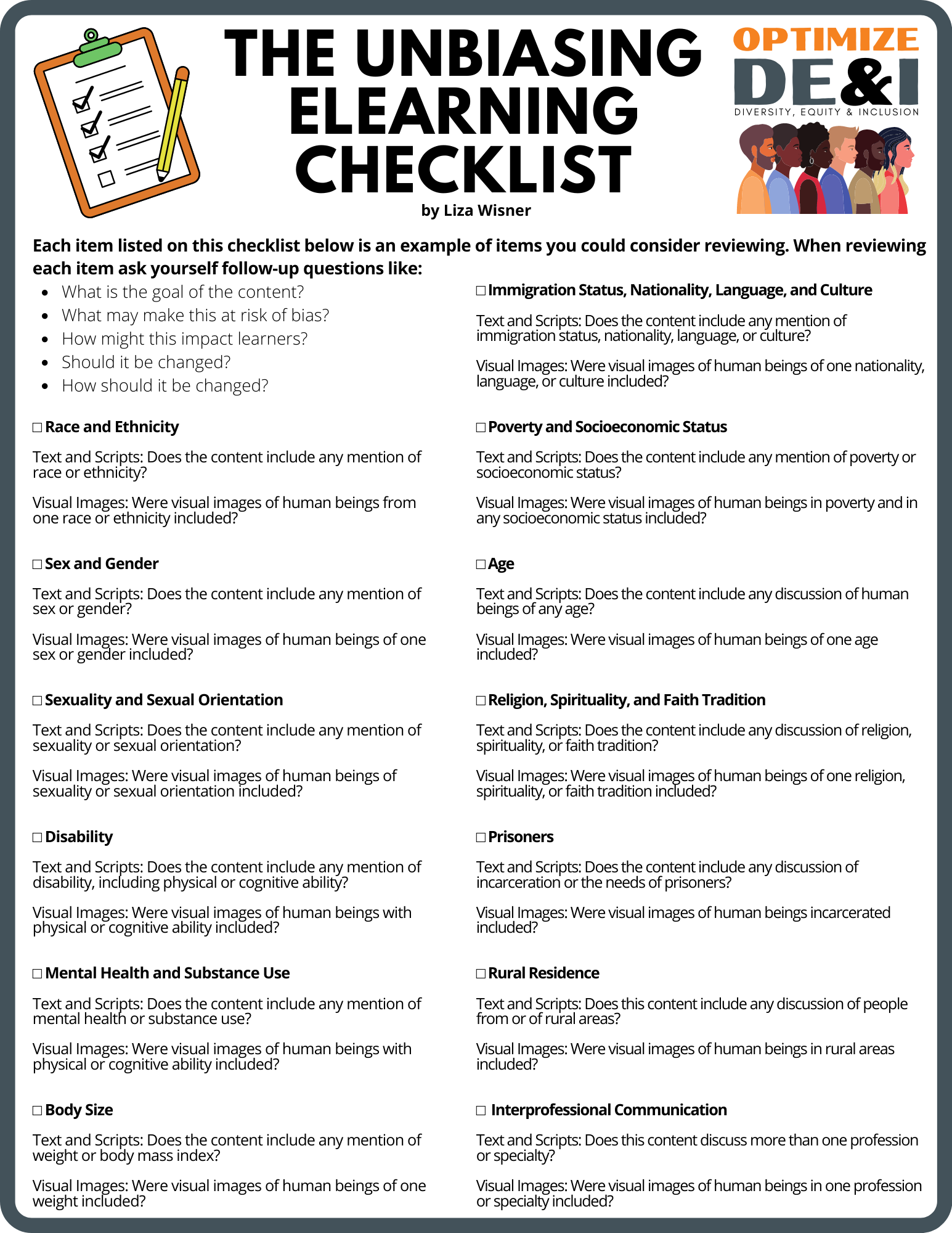The Unbiasing eLearning Checklist

Technology gives people worldwide and from all walks of life the opportunity to learn any range of topics and skills with the click of a button. However, is this convenience helpful or harmful to our communities? All learning environments should be inclusive and free from bias and prejudice. Unfortunately, while online learning environments are increasingly common, studies have found evidence of bias.
Even more startling, research shows that Artificial Intelligence (AI) systems tend to replicate harmful racist and sexist stereotypes when unintentionally programmed by developers to “see” people only as one race or gender.
Bias is Natural
In the same way that we may stereotype people, I have noticed an increasing trend in people stereotyping biases as negative. Pointing out a person’s bias can be threatening and sometimes leads the person to use self-protective responses. As a learning and development professional, I am fortunate to have studied human behavior and cognitive neuroscience while earning my master’s degree in instructional design and educational technology.
Simply put, bias is natural.
Our brains are capable of amazing things, but we are wired in a way that inhibits objective thinking. When faced with millions of pieces of information each second, our brain creates shortcuts to make fast decisions. Science has proven that we need these mental shortcuts, but they can lead to mental mistakes called “bias.”
One hundred and eighty-eight known biases affect both our thinking and our actions. This infographic from DesignHacks.co shows them all.
There is no easy fix to overcome biases because it is part of being human. However, we must be aware that these biases, if unchecked, can significantly impact and harm our opportunities, investments, and aspirations.
At the individual level, bias can negatively impact someone’s interpersonal relationships at home and work. At a societal level, it can lead to the persecution of an entire group, such as lessons learned from slavery and the Holocaust.
Unbiasing to Improve eLearning Content
In communities worldwide, recruiting and leadership are usually the first point of consideration when seeking to reduce bias. However, bias in developing content in all learning environments should not be overlooked.
Even though bias is natural, the problem is when we act on our biases, consciously or unconsciously. eLearning publishers develop content and course materials that include real-world scenarios and case studies. They make decisions on the stock footage to use and the language and definitions in the courses. When the publisher’s biases go unchecked, this harms the communities we serve because we are developing subtle, unintentional acts of discrimination.
An example could be the consistent use of the pronoun “she” when referring to individuals in traditional female roles, such as caregiving or teaching. This reinforces the stereotype that teachers and caregivers are female. Also, consider the use of the pronoun “he” when referring to people in senior leadership roles. This can unintentionally send the message that all people in senior leadership positions are male.
Every course author should be aware of their biases and work to reduce them.
Research suggests that using checklists can mitigate bias in decision-making. Here is an essential checklist to consider when developing elearning materials.
The eLearning industry has the potential to make an impact on developing more equitable learning environments. Even though we can never be completely free of bias, if we are conscious of it, we will be able to reduce the effects and achieve better outcomes over time.
With intentional effort and mindfulness, elearning can be diverse, inclusive, and equitable.
OpenSesame wants to help you start and scale a successful elearning business. Be sure to attend our 2022 eLearning Summit on August 25th at 9am Pacific Time (US) to learn more about amplifying varied perspectives, imagery, and voices to strengthen your ability to deliver the spark of learning to everyone. Register here: http://bit.ly/elearningsummit2022



1 Comments
[…] a related article, I discussed ways to you can unbias elearning with a checklist. While bias is natural to the human […]
Comments are closed.